Related Research Articles
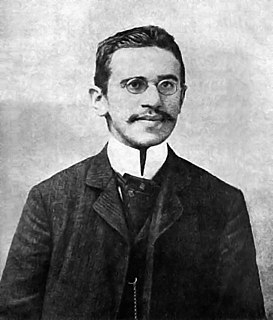
Otto Weininger was an Austrian philosopher who lived in the Austro-Hungarian Empire. In 1903, he published the book Geschlecht und Charakter, which gained popularity after his suicide at the age of 23. Parts of his work were adapted for use by the Nazi regime. Weininger was a strong influence on Ludwig Wittgenstein, August Strindberg, and, via his lesser-known work Über die letzten Dinge, on James Joyce.
This is a list of music-related events in 1810.

The Creation is an oratorio written between 1797 and 1798 by Joseph Haydn, and considered by many to be one of his masterpieces. The oratorio depicts and celebrates the creation of the world as described in the Book of Genesis.

The Seasons is a secular oratorio by Joseph Haydn, first performed in 1801.
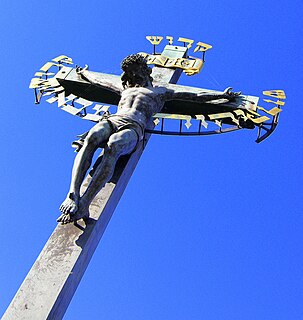
The Seven Last Words of Our Saviour on the Cross is an orchestral work by Joseph Haydn, commissioned in 1786 for the Good Friday service at Oratorio de la Santa Cueva in Cádiz, Spain. Published in 1787 and performed then in Paris, Rome, Berlin and Vienna, the composer adapted it in 1787 for string quartet, approved a version for solo piano in the same year, and finally adapted it in 1796 as an oratorio.
Jürgen Budday is a German conductor, director of church music and music teacher. He is artistic director of the concert series at the UNESCO World Heritage Site Maulbronn Abbey, of the choir 'Maulbronner Kantorei' and of the Maulbronn Chamber Choir.
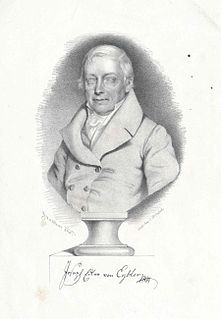
Joseph Leopold Eybler was an Austrian composer and contemporary of Wolfgang Amadeus Mozart.

The Christmas Oratorio, BWV 248, is an oratorio by Johann Sebastian Bach intended for performance in church during the Christmas season. It was written for the Christmas season of 1734 and incorporates music from earlier compositions, including three secular cantatas written during 1733 and 1734 and a largely lost church cantata, BWV 248a. The date is confirmed in Bach's autograph manuscript. The next performance was not until 17 December 1857 by the Sing-Akademie zu Berlin under Eduard Grell. The Christmas Oratorio is a particularly sophisticated example of parody music. The author of the text is unknown, although a likely collaborator was Christian Friedrich Henrici (Picander).
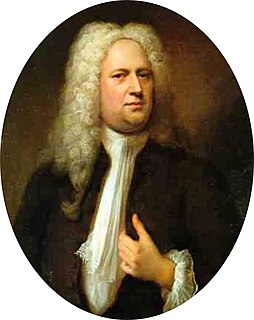
Israel in Egypt, HWV 54, is a biblical oratorio by the composer George Frideric Handel. Most scholars believe the libretto was prepared by Charles Jennens, who also compiled the biblical texts for Handel's Messiah. It is composed entirely of selected passages from the Old Testament, mainly from Exodus and the Psalms.
The Bamberg Symphony is a German orchestra based in Bamberg. It is one of the most prestigious orchestras in Germany. The orchestra was formed in 1946 mainly from German musicians expelled from Czechoslovakia after WWII, who had previously been members of the German Philharmonic Orchestra of Prague. The orchestra received the title of Bayerische Staatsphilharmonie in 1993. The orchestra commemorated its 60th anniversary on 16 March 2006.
Wladimir Rudolfowitsch Vogel was a Swiss composer of German and Russian extraction.

Friedrich Karl Waechter was a renowned German cartoonist, author, and playwright.
Musical settings of sayings of Jesus on the cross are compositions which set seven short phrases uttered by Jesus on the cross, as gathered from the four Christian Gospels narrating the Crucifixion of Jesus. Several composers have written musical settings of the traditional collection of seven sayings, sometimes called Seven Last Words and ultima septem verba, for various combinations of voice and/or instruments. Eventually these settings became a separate form of Passion music. Perhaps the most outstanding work in this genre in the Lutheran tradition is the work by Heinrich Schütz. Joseph Haydn composed string quartets titled Die sieben letzten Worte unseres Erlösers am Kreuze.

Herr Gott, Beherrscher aller Dinge, BWV 120.2, is a wedding cantata by Johann Sebastian Bach. He composed and first performed it in Leipzig, most likely in 1729.
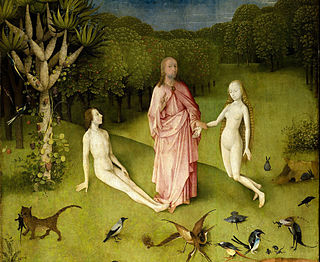
The Creation, the oratorio by Joseph Haydn, is structured in three parts. He composed it in 1796–1798 on German text as Die Schöpfung. The work is set for soloists, chorus and orchestra. Its movements are listed in tables for their form, voice, key, tempo marking, time signature and source.

The composition of Mozart's unfinished Requiem, K. 626, his last work, is surrounded by the following events.
Joseph Messner was an Austrian musician, composer and priest.

Josef Anton Stammel or, in some sources, Josef Thaddäus Stammel was an Austrian sculptor in the Baroque style.
Eins is an oratorio written on a commission from the Ökumenischer Kirchentag 2021 in Frankfurt, Hesse, Germany, the third ecumenical convention of lay Christians of different denominations in Germany. The text was written jointly by the Protestant pastor Eugen Eckert and the Catholic Franciscan Helmut Schlegel. The music of many genres was composed by Peter Reulein for the more traditional parts and by Bernhard Kießig for jazz and pop elements. The work is subtitled Ökumenisches Oratorium in vier Bildern für Solisten, Chor, Orchester und Band.
References
- ↑ Hildegard Herrmann, "Thematisches Verzeichnis der Werke von Joseph Eybler", Musikwissenschaftlichte Schriften X (München – Salzburg: Emil Katzbichler, 1976)